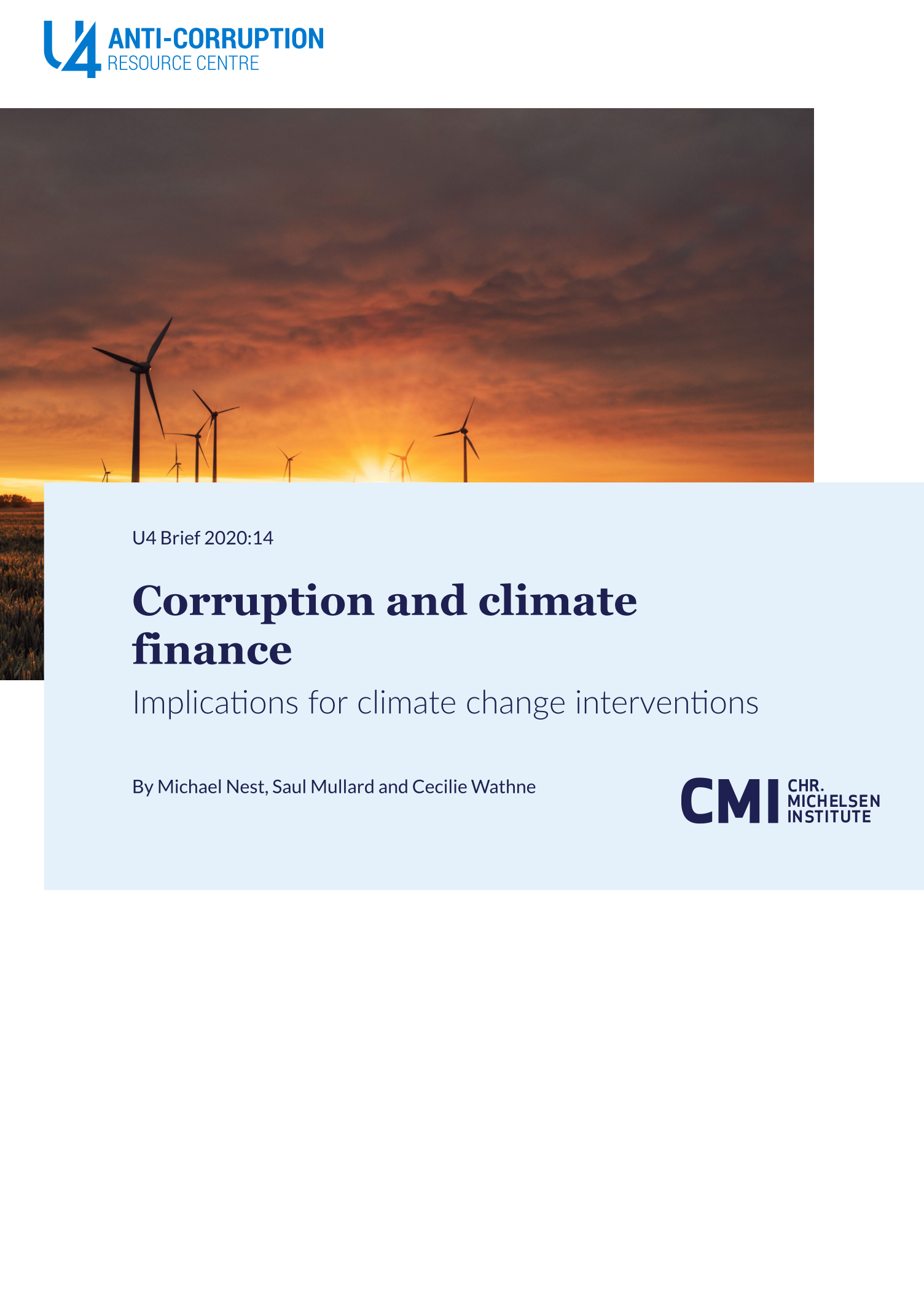Main points
- Corruption in climate finance negatively impacts climate change intervention, undermining mitigation efforts to reduce emissions and decreasing the quality of adaptation infrastructure – in both cases, donors and other funders suffer the loss or misuse of funds.
- The top recipients of climate finance are among the riskiest places in the world for corruption; however, they receive 41.9% of all climate related overseas development assistance.
- There has been some success with anti-corruption controls around overseas development assistance. However, vast sums of climate finance is routed outside typical, well controlled channels. Anti-corruption controls on climate finance have to be established, coordinated, and evaluated.
- Climate finance has to be optimised for impact and effectiveness. Strategies are needed to ensure climate finance is not stolen, wasted, or directed to suboptimal activities.
- Anti-corruption tools give climate change practitioners a better chance of limiting global warming to 1.5°C. Although a number of climate change interventions already incorporate such tools, some mechanisms attract more investment than others.
- The focus of anti-corruption efforts needs to be on renewable energy, low-carbon transport, and energy efficiency. Urgent research is required into how corruption undermines these sectors’ climate goals, and how it can be prevented.
- Analyses of the success or failure of climate change interventions rarely focus on governance issues. Lack of research means that there remains insufficient mapping of corruption risks, as well as undeveloped, untested and poorly evaluated anti-corruption tools.
